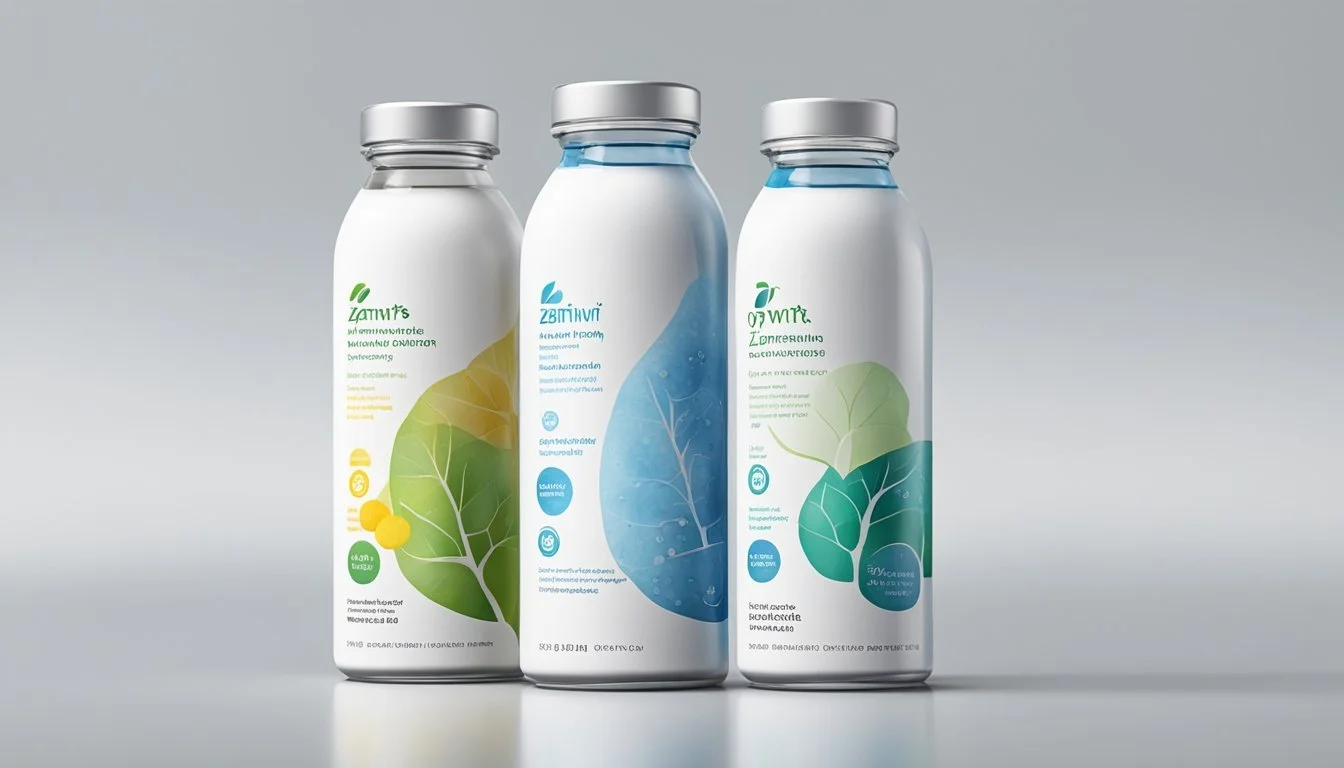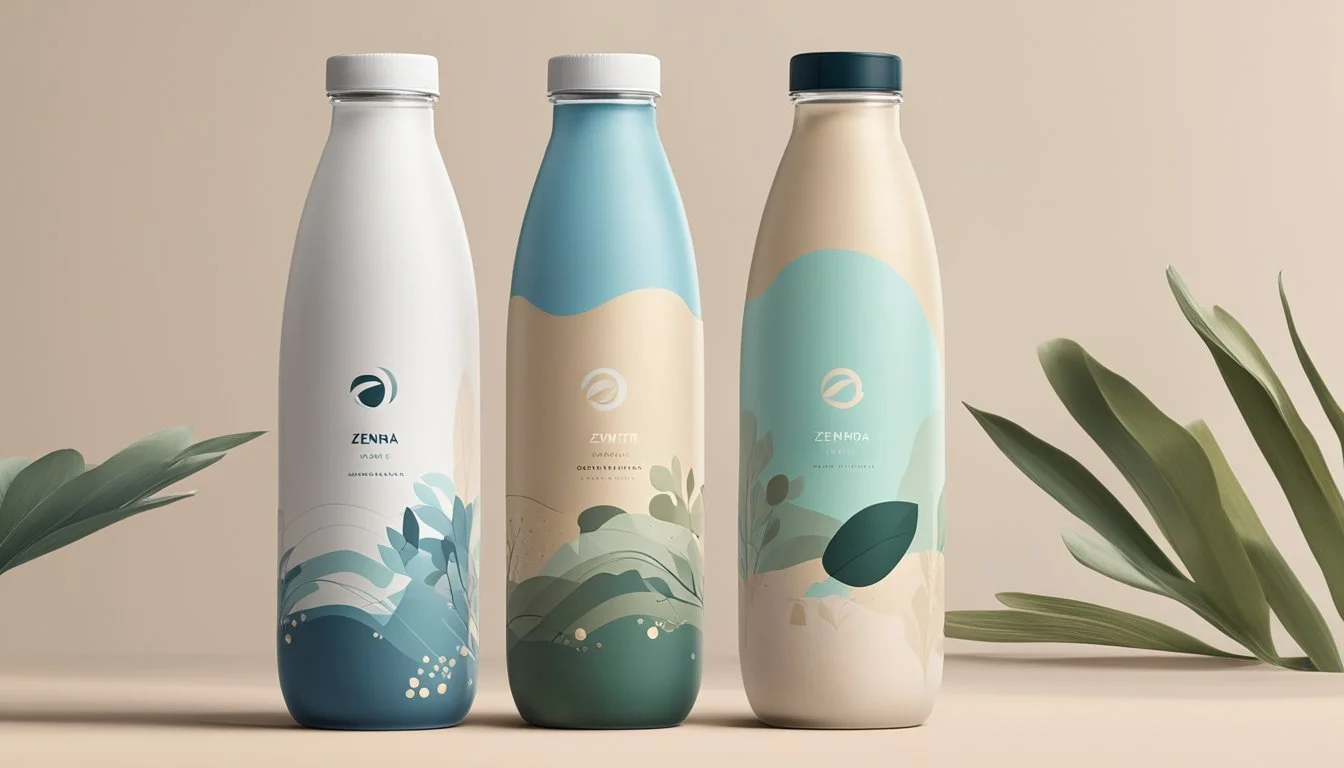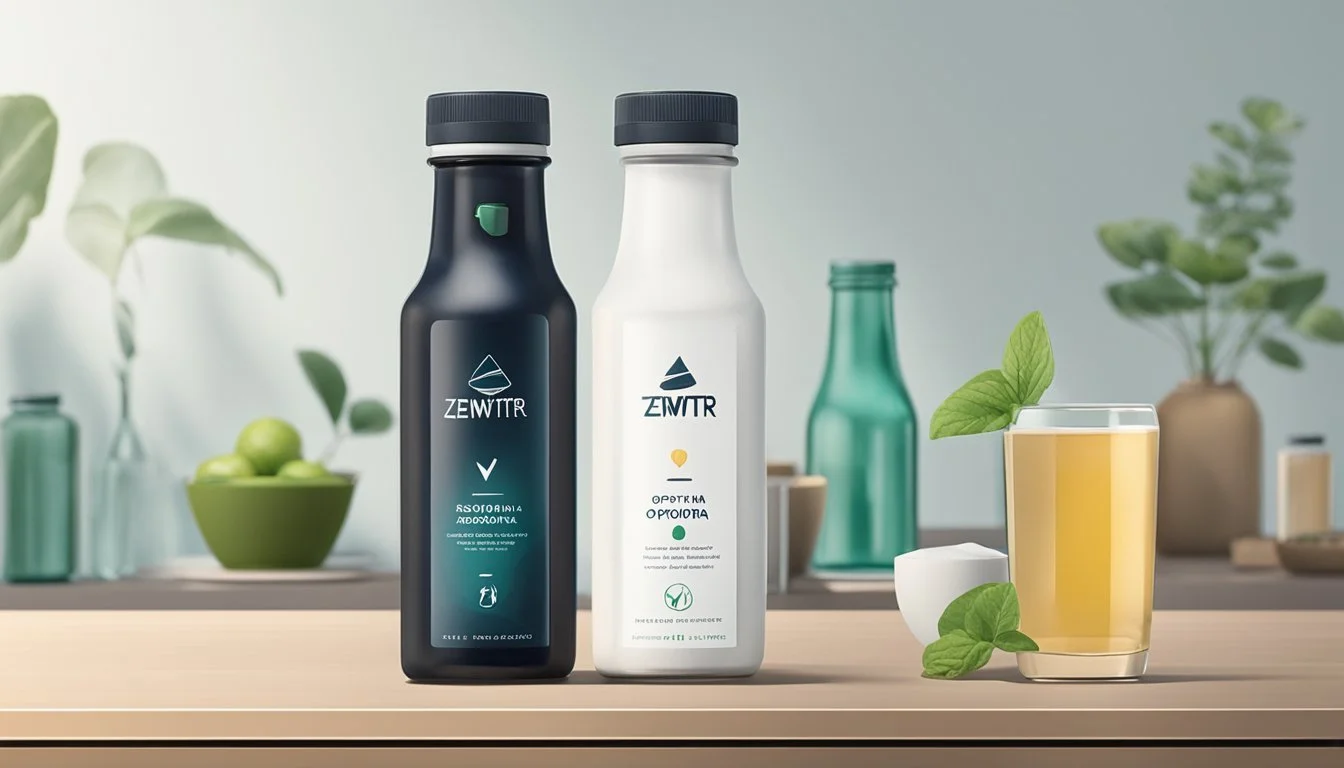Zenwtr vs. Ophora
Comparing Premium Bottled Waters
Choosing the right bottled water can make a significant difference in your daily hydration and overall health. ZenWTR and Ophora have both emerged as popular choices, each boasting unique benefits and distinct features. While ZenWTR promotes its eco-friendly packaging and alkalinity, Ophora is renowned for its oxygenated and purified water.
ZenWTR is designed for those who value sustainability and enjoy a refreshing, alkaline water sourced from recycled ocean-bound plastic. This not only helps reduce waste but also provides water with a higher pH, which some believe offers better hydration benefits. On the other hand, Ophora focuses on providing ultra-pure water enriched with oxygen, which may enhance bodily functions and improve athletic performance.
For consumers prioritizing eco-friendliness, ZenWTR may be the better choice. However, individuals seeking the purest form of hydration with potential health benefits might lean towards Ophora.
Brand Profiles
Both ZenWTR and Ophora are positioned as premium bottled water brands with unique focuses on health benefits and environmental sustainability. ZenWTR emphasizes eco-friendly packaging and natural alkalinity, while Ophora highlights its innovative purification processes and commitment to environmental consciousness.
ZenWTR: Background and Mission
ZenWTR was established with a mission to offer a high-quality, alkaline water that also addresses environmental concerns. The brand is known for its alkaline water with a pH of 9.5, made naturally without artificial additives.
One of ZenWTR's standout features is its commitment to sustainability. The company uses eco-friendly packaging, specifically bottled water in containers made from 100% recycled materials. This reduces plastic waste and underscores their dedication to protecting the environment.
ZenWTR appeals to consumers who prioritize both health benefits and environmental impact. The alkaline nature of the water is believed to neutralize acid in the bloodstream and improve metabolism, attracting health-conscious individuals.
Ophora: Brand History and Values
Ophora is recognized for its advanced water purification technologies and environmental sustainability. The brand's history is rooted in using innovative processes to deliver water that not only hydrates but also supports overall wellness.
Ophora employs cutting-edge purification methods, which include oxygenation and remineralization, aiming to provide water that replicates natural artesian sources. This differentiates them from other brands that rely on basic filtration methods.
Environmental considerations are central to Ophora’s mission. The brand uses sustainable practices in sourcing and packaging, demonstrating a clear commitment to reducing its ecological footprint. This appeals to environmentally conscious consumers who seek health benefits without compromising on environmental responsibility.
Both brands exhibit a strong dedication to merging health benefits with sustainable practices, each with its own unique approach. ZenWTR focuses on natural alkalinity and recycled packaging, while Ophora prioritizes advanced purification and sustainable sourcing.
Water Source and Quality
ZenWTR and Ophora provide unique high-quality water, differing primarily in their sources and purification methods. Both brands claim to prioritize sustainability and purity through sophisticated filtration and sterilization processes.
Source of Water: Comparing Origins
ZenWTR sources its water from a sustainable underground aquifer in the mountains. The natural alkalinity of the water, with a pH of 9.5, is a distinctive feature, offering a smooth taste due to its mineral content. This Mountain Spring Water ensures that the water is naturally filtered and rich in essential minerals.
Ophora, known for its premium quality, sources water from artesian wells. These wells are deep underground, providing Natural Water that is protected from surface contaminants. The high quality of this source is reflected in the purity and exceptional taste of the water, reliant on the geography and mineral composition of the wells.
Ensuring Purity: Filtration and Sterilization Processes
Both brands use advanced filtration methods to ensure the water's purity and safety. ZenWTR employs a meticulous Filtration Process that includes stages such as microfiltration and reverse osmosis to remove impurities, thereby enhancing the water's purity without compromising its natural alkalinity.
Ophora uses a multi-step purification process incorporating Ozone Sterilization and Ultraviolet Light treatment. These methods eliminate any potential pathogens, ensuring the highest safety standards. This process maintains the water's mineral balance while ensuring it remains fresh and uncontaminated.
Both companies highlight their Quality Control practices, aiming to deliver the purest, freshest water possible. These methods guarantee that each bottle meets strict safety standards, providing consumers with a reliable and healthy hydration option.
Health and Nutritional Comparisons
ZenWTR and Ophora both claim numerous health benefits, but they achieve these through different approaches. This comparison addresses the mineral content, effects on hydration and physical performance, and the implications of their pH levels on the body.
Mineral Content and Health Benefits
ZenWTR advertises its high alkalinity, indicating a pH of 9.5, while Ophora focuses on oxygenation.
ZenWTR contains essential minerals such as magnesium, calcium, and potassium. These minerals are critical for various bodily functions. Magnesium aids muscle and nerve function, calcium supports bone health, and potassium helps maintain electrolyte balance.
Ophora, on the other hand, promotes its oxygenated water, which may enhance oxygen delivery to cells. While oxygenated water's benefits are still under research, it may support skin health and overall vitality.
The mineral content of both brands plays a crucial role in their respective health claims, and consumers looking for specific health benefits should consider these factors when choosing a bottled water brand.
Hydration and Physical Performance
Hydration is crucial for physical performance, and both ZenWTR and Ophora offer unique advantages.
ZenWTR’s high pH level may aid in more effective hydration and help the body neutralize acid. This could be beneficial for athletes or individuals engaging in intense physical activities.
Ophora’s oxygenation feature claims to boost physical performance by enhancing the body’s oxygen levels. Increased oxygen can improve endurance, reduce fatigue, and enhance overall performance, though scientific evidence is still limited.
Both brands are marketed towards those looking to optimize their hydration for better physical outcomes, but the choice may depend on personal preferences and specific hydration needs.
pH Levels and Body Impact
ZenWTR boasts an alkaline pH of 9.5, which is significantly higher than the neutral pH of 7. This alkalinity can help neutralize bodily acids, potentially aiding those with acid reflux or other digestive issues.
Ophora doesn't emphasize a high pH but focuses on its highly oxygenated nature. The implications of enhanced oxygenation primarily target boosting metabolic processes and enhancing cellular respiration.
Choosing between them involves considering whether the consumer values alkaline water's neutralizing effects on body acidity or the potential benefits of increased oxygen availability.
Both brands cater to different aspects of health, highlighting the importance of balanced pH and mineral content.
Packaging and Environmental Stewardship
ZenWTR and Ophora both emphasize sustainable packaging and practices. This section examines their use of materials and the broader environmental footprint of their bottled water consumption.
Sustainable Practices and Materials
ZenWTR:
Materials: ZenWTR bottles are made from 100% recycled, certified ocean-bound plastic (rPET).
Innovations: ZenWTR is expanding its packaging options to include aluminum and glass, catering to varied consumer preferences.
Certifications: The brand boasts the Plastic Negative Brand Certification from the Plastic Credit Exchange (PCX).
Ophora:
Materials: Ophora typically uses high-grade plastic for its bottles, but with a focus on premium, reusable options.
Purity Focus: Ophora claims that their packaging maintains the purity and taste of the water.
Environmental Initiatives: Ophora's initiatives in sustainable packaging are not as prominently highlighted as ZenWTR's efforts.
Environmental Impact of Bottled Water Consumption
Plastic Pollution:
ZenWTR's use of ocean-bound plastic helps reduce plastic waste, a critical environmental issue. Their initiative ensures that each bottle contributes to the reduction of oceanic plastic pollution.
Sustainability:
By choosing recycled materials, ZenWTR significantly lessens its environmental footprint. The introduction of glass and aluminum options further supports sustainability by promoting reusable packaging solutions.
Consumer Reach:
ZenWTR is available in over 4,000 stores across the U.S., making it a widely accessible choice for eco-conscious consumers. In contrast, Ophora's market reach isn’t specified but focuses more on a niche segment demanding premium water quality.
Impact:
Although both brands aim to offer high-quality water, ZenWTR’s comprehensive approach to packaging and environmental stewardship positions it as a more environmentally friendly option compared to Ophora.
Flavor Profile and Consumer Experience
ZenWTR and Ophora offer distinct flavor profiles influenced by their mineral content and purification methods. Consumers often prioritize the taste and purity, making these aspects crucial for decision-making.
Taste Test: A Comparative Analysis
ZenWTR boasts natural alkalinity with a pH of 9.5, giving it a smoother taste due to higher mineral content. The minerals impart subtle flavors, enhancing the drinking experience. Consumers often describe it as having a refreshing and balanced profile.
Ophora emphasizes purity and oxygenation, offering a crisp and clean taste. Their water undergoes an advanced purification process, removing impurities and retaining beneficial oxygen. The result is a taste that feels pure and revitalizing, appealing to those who prefer a neutral flavor.
Both brands cater to different consumer preferences. While ZenWTR appeals to those who enjoy mineral-rich water, Ophora attracts individuals seeking pure and crisp hydration. Each offers a unique taste, reflecting their specific purification and mineralization processes.
Market Position and Availability
ZenWTR and Ophora occupy distinct positions in the bottled water market. These brands differentiate themselves in terms of price points, accessibility, and consumer preferences.
Price Points and Accessibility
ZenWTR markets itself as both environmentally friendly and premium. The price is higher compared to many mainstream bottled water brands, reflecting its eco-conscious packaging and ultra-purified water. This brand targets consumers willing to pay extra for sustainability and quality.
In contrast, Ophora positions itself even more toward the high-end, luxury segment. The pricing for Ophora is typically higher due to its advanced purification processes and customization options, such as specific ionized mineral blends. Consumers choosing Ophora often prioritize the perceived health benefits and exclusivity.
Both brands prioritize presence in specialty stores and upscale supermarkets. ZenWTR, however, is more widely available online and in larger retail chains compared to Ophora.
Comparing Water Brands and Market Choices
Consumer preferences play a significant role in market choices for ZenWTR and Ophora. ZenWTR leverages marketing strategies that highlight its commitment to reducing plastic waste and being eco-friendly. This appeals significantly to the environmentally conscious demographic.
Ophora, on the other hand, leverages its premium features and health benefits in its marketing strategies. This brand's appeal is strong among consumers who are highly health-conscious and willing to invest in premium hydration options.
Both brands meet EPA standards but differ in market reach. ZenWTR can be found across the United States in more convenient locations. Ophora, due to its luxurious pricing, is available in select niche markets.
By examining the differences in availability, price points, and marketing strategies, consumers can better determine which brand suits their preferences and needs.
Regulations and Quality Assurance
Ensuring both Aquafina and Zenwtr's adherence to stringent safety and quality standards is crucial. Detailed below is how they meet EPA safety standards and their internal quality control processes.
Ensuring Safety: EPA Standards and Compliance
Both Zenwtr and Ophora must comply with the Environmental Protection Agency (EPA) standards to ensure the water is safe for consumption. The EPA sets limits on the presence of heavy metals like lead and other harmful chemicals to protect consumers from potential health risks.
Compliance involves regular testing for contaminants such as microbes and dangerous chemicals. Any traces of impurities are systematically identified and removed through advanced filtration processes. This regulatory framework is integral in maintaining public health by ensuring that bottled water delivers clean, potable water.
Quality Control Processes
Zenwtr and Ophora employ rigorous quality control measures to uphold their commitment to purity and safety. This includes multi-step filtration processes to eliminate contaminants and impurities. They also implement state-of-the-art sterilization techniques to ensure the water remains free from microbial contamination.
Internal quality teams conduct frequent testing at various stages of production. This involves checking for heavy metals, ensuring no trace of chemicals like lead, and confirming the resultant water meets taste and safety standards. These quality assurance measures are critical in delivering consistently high-quality bottled water to consumers.
Conclusion
When comparing ZenWTR and Ophora, several factors come into play. Both brands offer unique benefits, making the choice dependent on individual preferences.
Health Benefits: ZenWTR boasts a natural alkalinity with a pH of 9.5, which may aid in balancing body acidity. Ophora, on the other hand, provides oxygen-rich water, claiming to enhance hydration and improve physical performance.
Environmental Impact: ZenWTR stands out for its commitment to reducing plastic pollution. It uses 100% recycled ocean-bound plastic for its bottles. Ophora also emphasizes sustainability, incorporating eco-friendly practices in its production process.
Quality: ZenWTR's natural alkalinity and high mineral content contribute to its premium quality. Ophora focuses on advanced purification processes, ensuring clean and oxygenated water. Both brands prioritize superior quality, but in different ways.
Taste: ZenWTR offers a smooth taste due to its alkaline nature and mineral presence. Ophora's water is noted for its crisp and clean taste attributed to its oxygenation and purity.
Price: ZenWTR is often priced higher due to its recycled packaging and alkalinity. Similarly, Ophora is considered a premium product, reflecting its advanced purification and oxygenation processes. Consumers seeking quality might find the investment worthwhile.
Each brand has its strengths. ZenWTR excels in sustainability and alkalinity, while Ophora offers advanced purification and oxygenation. The ideal choice depends on what aspects—health benefits, environmental impact, quality, taste, or price—are most important to the consumer.
More About Zenwtr
Mountain Valley Spring Water vs Zenwtr: Which Bottled Water is Better?
Richard's Rainwater vs Zenwtr: Which Bottled Water is Better?
Whole Foods Italian Still Mineral water vs Zenwtr: Which Bottled Water is Better?
Zenwtr vs Kirkland Signature: Which Bottled Water is Better?








